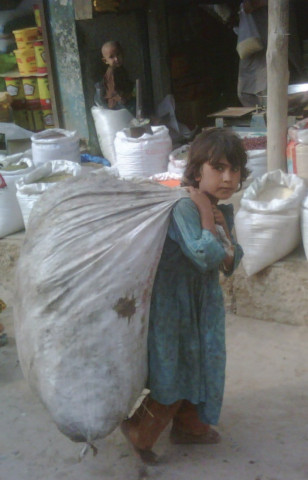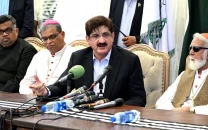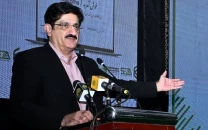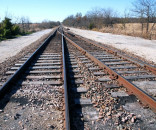The lost generation
“I’m Pakistani!” says six-year-old Rizwan in Pushto, as he brushes a lock of hair off his face.

The Afghan children of Pakistan face a bleak future in the wake of identity theft and a lack of legal clarity as they try to make a home in Pakistan. For all practical purposes, this population does not exist; there is no documentation, no acknowledgement.
Najeeb Khan, whose father migrated from Afghanistan way back in 1978 and married here says, “I was born in Pakistan; I got married here; now I even have a child.”
He is worried about the future of his son. “I am illiterate. If I don’t work every single day my wife and child will starve but people here are not ready to accept me as their fellow citizen,” he says. “I have never seen Afghanistan. I just wish my child could attend school here.”
His son has been born and brought up in this country yet is not considered a part of Pakistani society. He is among the children of those hundreds and thousands of Afghans who fled their native land in 1979 as war broke out in the country and the hospitable Pakistani government opened the gates of the Durand Line. Today, these children are called the children of a political wedlock.
In this settlement of 95,000 residents, the refugees live a life of forced anonymity. The Government of Pakistan has denied them nationality, but they are also not Afghan citizens. They are part of a diaspora that has been living here for over 30 years. There are more than 500,000 Afghan refugees in Sindh, and 200,000 in Karachi, according to the Afghan tribal elders. The official figures released by the United Nations High Commission for Refugees stand at 92,000 Afghan refugees for Sindh alone. Pakistani authorities have always struggled to register these immigrants. Without National Identity Cards (NIC) and a clear national status, their children cannot be issued birth certificates and so, despite being born in Pakistan, their nationality remains unclear and we observe classic cases of identity-theft.
As the head of the Afghan tribal jirga gives us a tour of the market, a vegetable vendor passes by with an attentive seven-year-old boy, sitting on the cart next to the vegetables, monitoring the daily sales with remarkable proficiency. Zalanda, a petite girl no older than 10, hauls a bag of refuse twice her weight, sweat trickling down her brow. For the children of Afghan refugees, there are no public facilities like schools, hospitals and parks. In this particular settlement there are 20,000 children, out of which only 2,000 attend the 11 madrassas in the area; 250 of them are enrolled in the only privately-run religious middle school. They will grow up to find virtually no jobs available to them.
Without a formal education, the likelihood of these children being lured into radical training increases drastically, says Rubina Shahab, a psychiatrist, concerned about the dangers the country could face as a result of the government’s continual neglect of this crucial issue. According to Shahab, the children who live in refugee camps grow up in a conditioned community where social and cultural exposure is limited. Bribing them for a small sum of cash for petty crimes is more likely to be successful in this impoverished community. The madrassas they attend do precious little to put them off a life of violence.
Regarding their circumstances, the head the Afghan tribal Jirga, Haji Abdullah says, “Firstly we are thankful for the hospitality bestowed upon us by the Pakistanis; you opened your country, your houses and your hearts to us.” He requests the government to allow Afghan refugees a legitimate residency programme. He is not confident enough to claim he is a Pakistani but says, “Close the border so the ‘others’ don’t infiltrate and make matters worse,” clearly labelling the ones on the other side of the Durand as aliens.
Registration authorities are still waiting for the government to decide the fate of the refugees. Nayyab Hasan Zaidi, a government official, who deals with official registration and citizenship in Karachi, says that they have not received any instructions from the government of Pakistan regarding these refugees. “The registration authorities cannot make decisions on their own. To give legal status to a particular community or individual is the job of the government,” he argues.
They might be a long way from being assimilated into mainstream society but the Afghans of this refugee camp arranged their second major football tournament this month. An empty plot of sand was taken as a football ground and little children were practising with much enthusiasm.
“This is my country and I am happy here,” seven-year-old Zeqar says with a smile, as he kicks the football into the imaginary net.
Published in The Express Tribune, August 1st, 2010.



















COMMENTS
Comments are moderated and generally will be posted if they are on-topic and not abusive.
For more information, please see our Comments FAQ